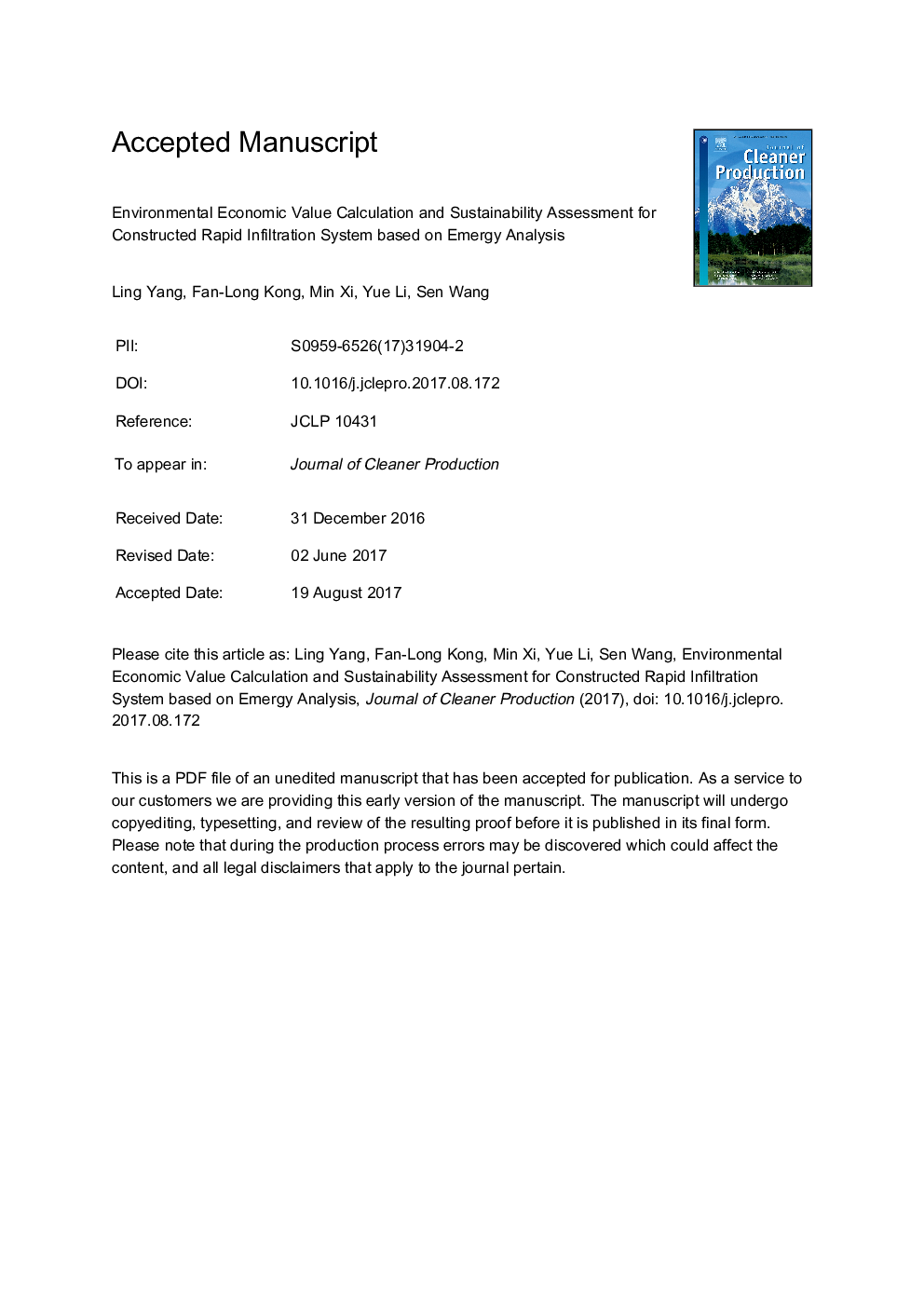| Article ID | Journal | Published Year | Pages | File Type |
|---|---|---|---|---|
| 5479474 | Journal of Cleaner Production | 2017 | 29 Pages |
Abstract
With the extensive application of decentralized sewage treatment systems in China, it is essential to reveal the environmental economic value of resources and sustainability of systems, so as to improve the efficiency of environmental resources utilization and reduce or avoid waste. Through emergy analysis, this study aimed to assess the environmental economic value and the sustainability of a decentralized sewage treatment plant, which is located in Qingdao, China. The results show that the environmental economic value of the system is approximately 5.07E+05 em$/yr, and the economic benefit of the system is about 4.95E+05 em$/yr, a remarkable economic benefit from the constructed rapid infiltration system. The environmental loading ratio and the emergy sustainability index of the system are 0.07 and 242.37, respectively, indicating that it has little negative impacts on the environment and achieves high sustainability. Compared to other systems, the systems with reusing treated water are more sustainable with higher emergy sustainability index. The reuse of treated water can bring environmental benefits, which is consistent with the requirements of sustainable development. Constructed rapid infiltration systems are found to be less energy-intensive and more environment-friendly than conventional treatment systems, which have a very wide application prospect in developing countries.
Keywords
Related Topics
Physical Sciences and Engineering
Energy
Renewable Energy, Sustainability and the Environment
Authors
Ling Yang, Fan-Long Kong, Min Xi, Yue Li, Sen Wang,
